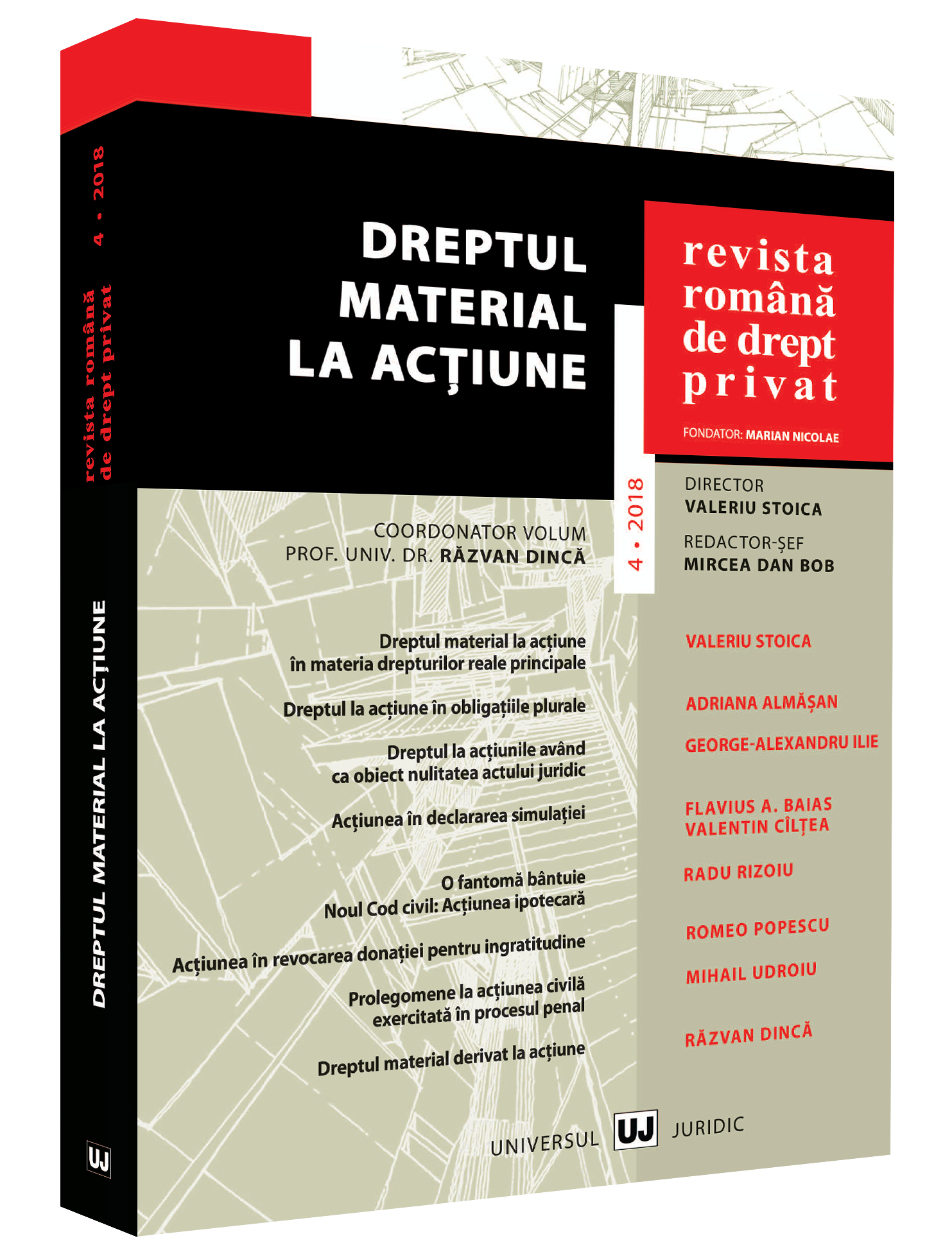Elemente de particularitate ale acţiunii colective
Particularities of the class action
Author(s): Ioan Ilieş NeamţSubject(s): Law, Constitution, Jurisprudence, Civil Law
Published by: Universul Juridic
Keywords: mass torts; class action; conditions for authorization; diffuse rights; collective rights; individual homogeneous rights; advantages;
Summary/Abstract: Considering the substantial increase of mass torts in recent years, the need for a legislative intervention in order to regulate a legal mechanism able to respond adequately to the challenges posed by this new type of torts has become obvious. A possible solution, often adopted by other states, might be the class action. The class action is a completely atypical institution even for those legal systems that have a historical tradition in the field. Implying the right of a representative to act, without a legal or conventional mandate, on behalf of the victims of a mass tort, who are not parties in the proceedings but will be heled by the res iudicata effect of the decision, the class action stands out through a unique set of particularities that individualize and outline its eccentric identity. At the same time, these unique features lead to major difficulties in identifying class action’s legal nature, as it is neither a purely procedural instrument nor a strictly substantial one. In any case, when it comes to mass torts, as it makes possible the aggregation of all victims in single trial, by comparison with individual trials, the class action has some clear advantages for both the parties and judiciary.
Journal: Revista Română de Drept Privat
- Issue Year: 2018
- Issue No: 04
- Page Range: 362-390
- Page Count: 29
- Language: Romanian
- Content File-PDF

